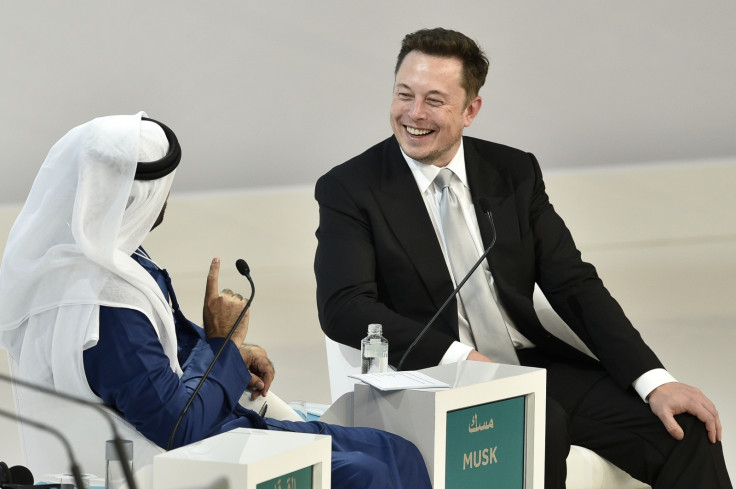Elon Musk says humans need to merge with machines or risk becoming irrelevant in the AI age
Musk warned global leaders to pay close attention to AI development so researchers "don't get carried away".
Tesla and SpaceX CEO Elon Musk says humans will need to merge with machines or risk becoming irrelevant in the age of artificial intelligence (AI). Speaking at the World Government Summit in Dubai, Musk said the speed at which our brains operate and communicate is much slower than computers.
"Over time I think we will probably see a closer merger of biological intelligence and digital intelligence," Musk said, CNBC reports. "It's mostly about bandwidth, the speed of the connection between your brain and the digital version of yourself, particularly output."
While computers relay information at "a trillion bits per second", humans - who mostly communicate by typing via a mobile device - can do so at about 10 bits per second.
"Some high bandwidth interface to the brain will be something that helps achieve a symbiosis between human and machine intelligence and maybe solves the control problem and the usefulness problem," he said.
Musk also talked about his fear of "deep AI" which he referred to as "artificial general intelligence".
"Deep artificial intelligence — or what is sometimes called artificial general intelligence, where you have AI that is much smarter than the smartest human on Earth — I think that is a dangerous situation," he said.
The Tesla founder also noted that the most immediate impact of AI "from a technology standpoint" is autonomous cars, which his company is developing. Musk said the disruption, which affects people who drive for a living, will take place over the next 20 years where 12-15% of the global workforce could find themselves unemployed.
"This is going to happen much faster than people realise and it's going to be a great convenience," Musk said. "But there are many people whose jobs are to drive. In fact I think it might be the single largest employer of people... Driving in various forms. So we need to figure out new roles for what do those people do, but it will be very disruptive and very quick."

Musk also asked global leaders and officials to pay close attention to AI research and development, to be careful about the adoption of technologies and make sure that researchers don't get "carried away".
"Sometimes what happens as a scientist is that you're invested in your work and don't necessarily realise the implications of what you're doing," Musk said. "So I think it's important for public safety for governments to keep a close eye on artificial intelligence and make sure that it does not represent a danger to the public."
Musk has previously voiced his concerns about the possible consequences of AI noting that it could be unpredictable and dangerous if developed recklessly without proper oversight or regulation.
In December 2015, he launched the $1bn non-profit OpenAI that aims to "build safe AI, and ensure AI's benefits are as widely and evenly distributed as possible". The open source programme received the backing of multiple high-profile Silicon Valley donors including LinkedIn co-founder Reid Hoffman, PayPal co-founder Peter Thiel and Y Combinator's Sam Altman.
'We are the AI'
Musk has also spoken about humans merging with AI in the past.
In a recent interview with Y Combinator, Musk said the cortex and limbic system in the human brain work well together, adding that it would be very "unusual" to find someone who wished to get rid of one of them.
"'I think if we can effectively merge with AI, like improving the neural link between the cortex and your digital extension of yourself, which already exists but just has a bandwidth issue, then effectively, you become an AI-human symbiote," he said.
Musk added that this would become so widespread that "anyone who wants it can have it" and would solve the "control problem" as well.
"We don't have to worry about some evil dictator AI because we are the AI collectively," he noted. "That seems like the best outcome I can think of."
© Copyright IBTimes 2024. All rights reserved.





















